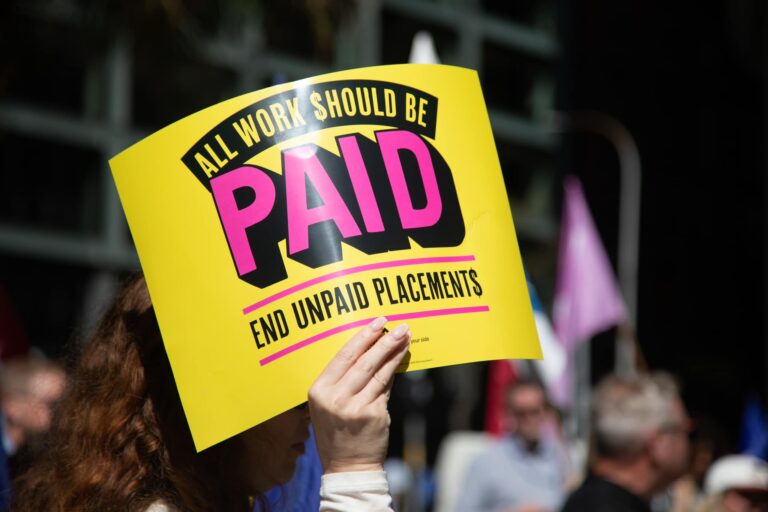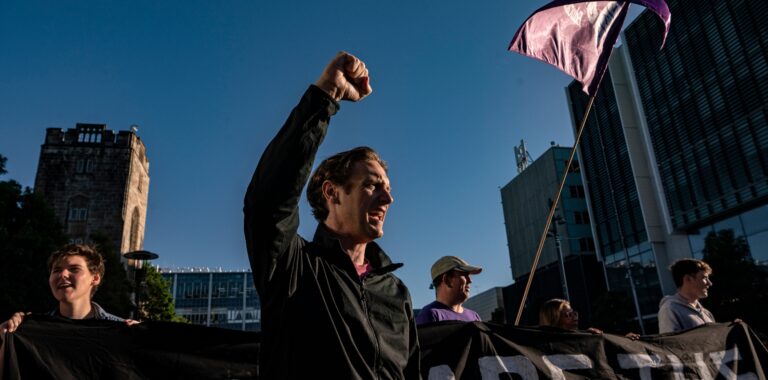
Labour and Liberal united in folly on Aboriginal jobs, say activists
By Austin Mackell
With ten days to go to polling day, both major parties have endorsed the Generation One Aboriginal employment initiative, lead by mining billionaire Andrew “Twiggy” Forrest. The coalition was represented at the Redfern event by Tony Abbot, and the Labor party by Tanya Plibersek ,the member for Sydney [the crowd hisses and boos]. The essence of the plan is that industry groups around the country will provide up to 20,000 jobs around the country for Aboriginal people, as long as government provides the necessary training. Also speaking at the event was professor Peter Shergold, an academic and former high ranking public servant who worked on Indigenous affairs under Hawke, Keating, Howard and Rudd, and who has been involved in the projects design. He took time to denounce the tendency for governments to dole out “sit down money,” which he said he had seen “compounding the problem of passive welfare and learned helplessness.”
Jean Parker of the Stop the Intervention Coalition Sydney (STICS) says the approach is not as new as the sales pitch. She compares it to the already running Australian Employment Covenant, set up by Forrest with much fanfare in august of this year, aiming to create “50,000 sustainable Indigenous jobs”, so far she says, less than a hundred of these have come through. She also describes the major parties announcements of their support, just ten days out from the election, after a campaign void of serious discussion on the issue, as “very cynical”. She says that if the parties were serious they would revisit the Community Development Employment Program, a project that she says was a more positive and constructive approach than the one now being suggested. The program gave government support to Aboriginal run projects, which often provided services, such as garbage collection and caretaking of public parks, on which remote communities could not rely on councils. Up to 15,000 Aboriginal people were involved in the program, receiving – rather than full wages- top-ups to their welfare payments as payment for their work. However, when the intervention was announced control of these projects was taken from the local communities and handed to Centrelink, and the top-up payments – already much less than pay for equivalent work in a major urban centre- were cancelled. As a result, many of the projects have folded and many of the services now go unprovided.
The thing to do, Parker insists, would be to look carefully at which of the projects was working and which was not, and to help turn some of the positions into real jobs, which would give real incomes to Aboriginal people for real work done to improve their communities.









